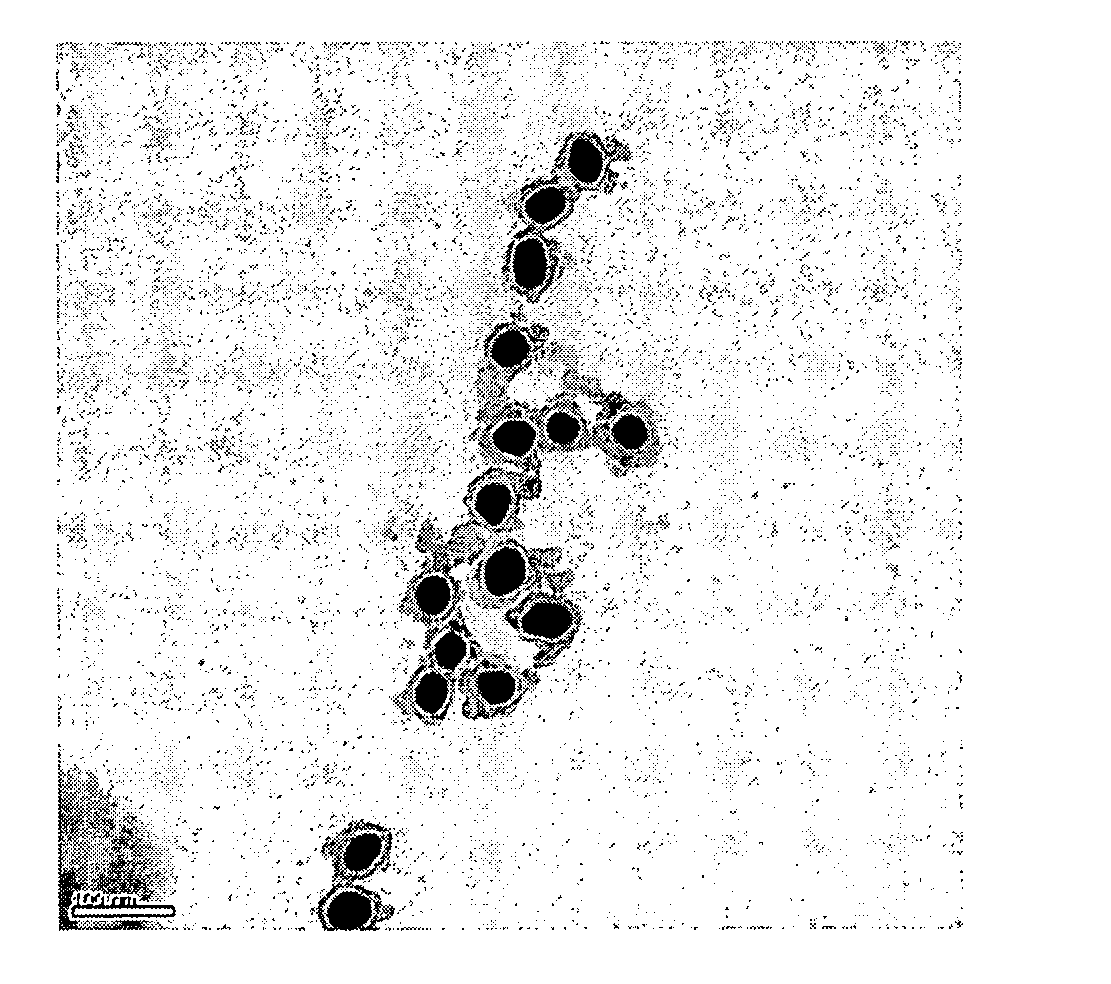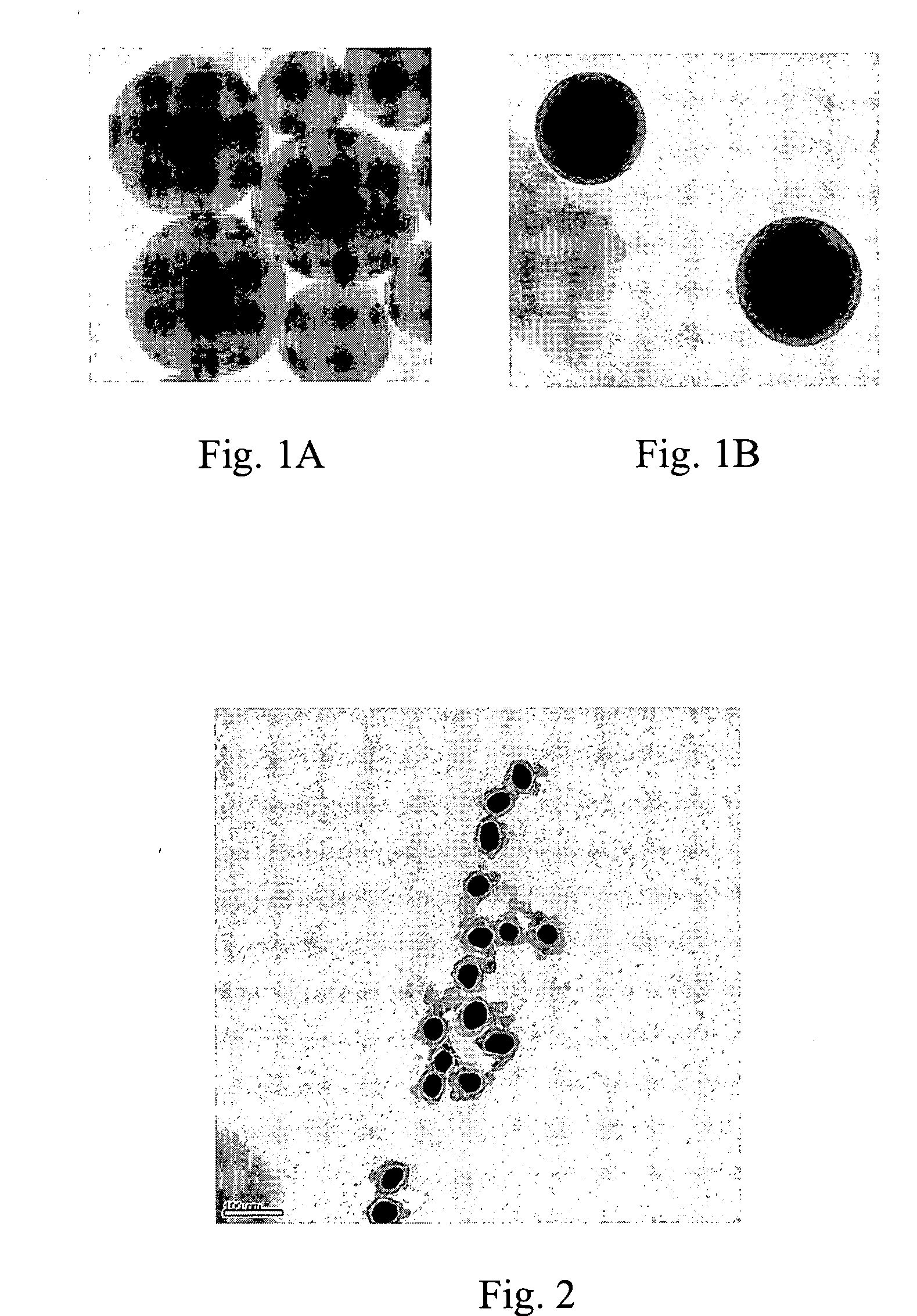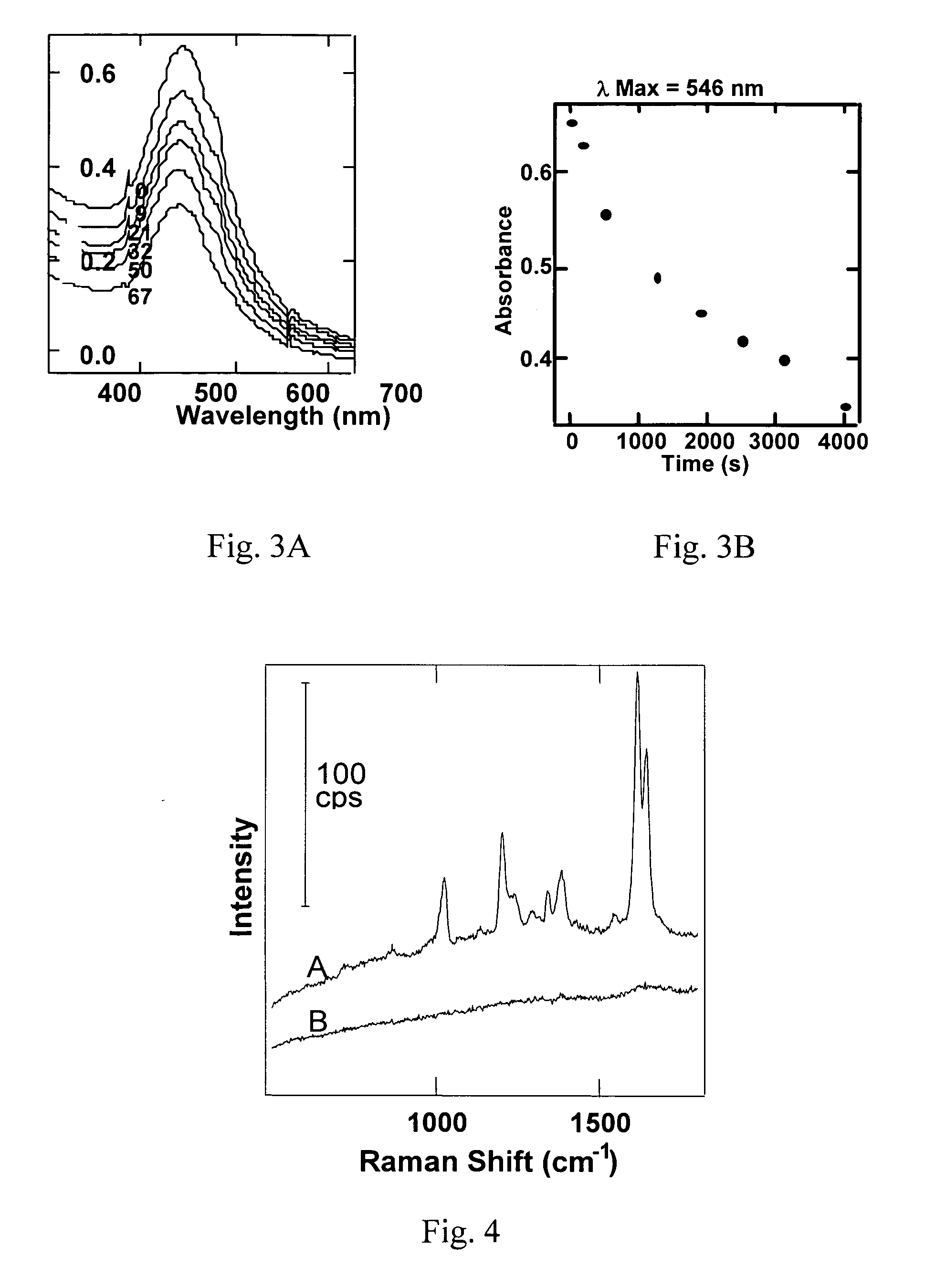Surface enhanced spectroscopy-active composite nanoparticles
- Summary
- Abstract
- Description
- Claims
- Application Information
AI Technical Summary
Benefits of technology
Problems solved by technology
Method used
Image
Examples
working examples
Working Example 1
Synthesis of Glass-Coated Analyte-Loaded Nanoparticles (GANs)
[0084] Materials: Water used for all preparations was 18.2 MΩ, distilled through a Barnstead nanopure system. Snake skin dialysis tubing, 3,500 MWCO, was purchased from Pierce. 3-aminopropyltrimethoxysilane (APTMS), 3-mercaptotrimethoxysilane (MPTMS), and 3-mercaptopropylmethyldimethoxysilane (MPMDMS) were obtained from United Chemical. HAuCl4.3H2O, trisodium citrate dihydrate, sodium hydroxide, trans-1,2-bis(4-pyridyl)ethylene (BPE), pyridine, 2-mercaptopyridine, sodium silicate, tetraethyl orthosilicate (TEOS), and ammonia were obtained from Sigma-Aldrich. BPE was recrystallized several times before use. Dowex cation exchange resin (16-40 mesh) was obtained from J. T. Baker. Pure ethyl alcohol (EtOH) was purchased from Pharmco.
[0085] Colloid preparation: 12-nm colloidal Au (nearly spherical, with a standard deviation less than 2 nm) was prepared from HAuCl4.3H2O reduced by citrate as described in Gra...
working example 2
Transmission Electron Microscopy of GANs
[0090] Transmission electron microscopy (TEM) images were taken of preparations of GANs; these TEM images illustrate the uniformity of GANs preparations. FIG. 1A shows GANs containing 35 nm Au cores with 40 nm glass. FIG. 1B shows 60 nm Au cores with 16 nm glass. FIG. 2 illustrates 35 nm Au, 8 nm glass GANs following centrifugation through a 50% glycerol solution.
working example 3
Demonstration of the Sequestration of the Metal Core from Solvent
[0091] For GANs to function in diverse chemical environments, it is necessary that the Raman-active analyte be sequestered from the surrounding solvent. To demonstrate this sequestration, one may look at diffusion rates through the glass network. This is done by monitoring the rate at which aqua regia (3 HCl: 1 HNO3) is able to etch out the Au core of a GAN. FIG. 3 demonstrates one such experiment for a batch of GANs particles with a 35 nm Au core, and 8 nm shell of glass. To 500 μl of ≈0.17 nM GANs was added 200 μl of an etch solution (50 μl HNO3 and 150 μl HCl). The absorbance of the solution was measured (λmax 546 nm) at various times after addition of the etch solution. Etching of the gold core results in a decrease in the absorbance; this is plotted in FIG. 3A (the time after the addition of the etch solution is indicated). The rate of Au etching is shown in FIG. 3B as a plot of absorbance versus time in etch so...
PUM
| Property | Measurement | Unit |
|---|---|---|
| Thickness | aaaaa | aaaaa |
| Thickness | aaaaa | aaaaa |
| Thickness | aaaaa | aaaaa |
Abstract
Description
Claims
Application Information
 Login to View More
Login to View More - R&D
- Intellectual Property
- Life Sciences
- Materials
- Tech Scout
- Unparalleled Data Quality
- Higher Quality Content
- 60% Fewer Hallucinations
Browse by: Latest US Patents, China's latest patents, Technical Efficacy Thesaurus, Application Domain, Technology Topic, Popular Technical Reports.
© 2025 PatSnap. All rights reserved.Legal|Privacy policy|Modern Slavery Act Transparency Statement|Sitemap|About US| Contact US: help@patsnap.com



